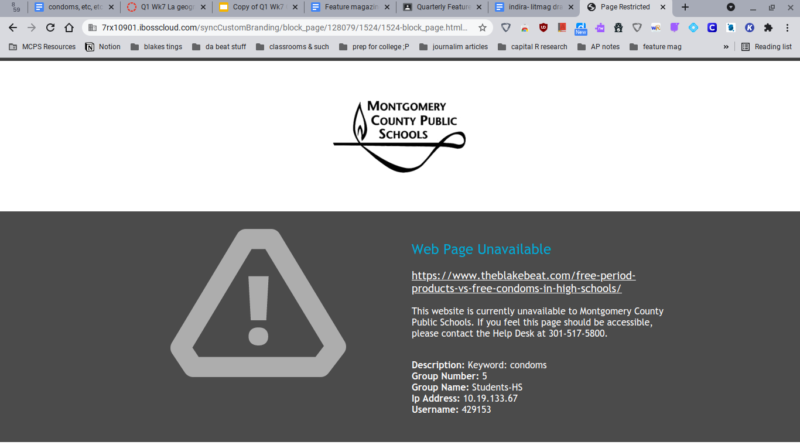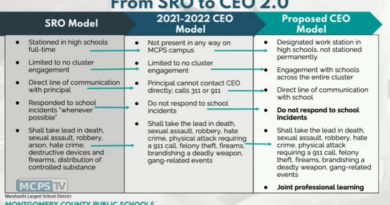“C*ndoms” is Not a Bad Word: How Modern Day Censorship Stigmatizes Our New Normal
“Free Period Products vs. Free C*ndoms in High Schools.” That’s the title of the first true journalistic piece I wrote for the Beat. I was excited, too. It was a cause I was passionate about, I was going to conduct my first interviews, and I finally got the chance to explore my writing style.
I published that article in September of 2019. It held the featured story spot on our website for about a couple days. It was exhilarating. At the time, I wouldn’t have even cared if anyone read it; it was the fact that my work and my opinions were on display, published, and seemingly cemented in my personal history.
A couple days ago, I tried to go back and reminisce about the euphoria I experienced with that piece (and to question my then-use of the word female to incorrectly define people who have periods). Unfortunately, there was nothing there for me to see.
When I clicked on the link to the article from The Blake Beat’s main page, I was rudely, and honestly quite confusingly, greeted with an error message:
“Keyword: c*ndoms?” C*ndoms? C*ndoms as in the thin piece of rubber that school health curriculums have been begging students to use for years to combat teen pregnancies? C*ndoms as in the most common safe s*x practice? C*ndoms as in the cheapest, most easily accessible contraceptives?
And that’s the word that got my article blocked?
My article had remained untouched for two years. Apparently, for two years, there was no problem with the word c*ndoms. What changed in 2021 that made MCPS abruptly decide “c*ndoms” is a bad word?
I have to consider that this may not be just about words like c*ndoms. Restricted sites in general have been an issue this year. For example, theblakebeat.com, the website for our own school newspaper, was blocked for the first two weeks of school. That had never been a problem since its creation in 2019. Other academic websites, too, that we’ve been expected to use this year, have also been inaccessible.
However, those issues were ones that were quickly resolved. My article, as of November 29 (weeks after an access request was sent in), is still blocked. So, speaking more specifically about the word choice that was deemed problematic, let’s look at the issue with censorship in this form.
I know c*ndoms has a negative connotation and often a crude one. Its association with s*x reasonably makes it something that MCPS wouldn’t want students being able to search. I understand that it’s better to be careful than careless, but broad, widespread censoring comes with it’s consequences.
Filing my article under the general category of s*x and other inappropriate contexts when it clearly doesn’t fall into any category of such completely disregards the positive significance of the word. C*ndoms should not be reduced to its stigmatized meaning. As mentioned, teenagers have practically been begged over the past decade to use them instead of nothing at all. It’s hard to support that notion when using the word is seen as nothing but an indication of s*x and s*x only.
C*ndoms can also mean responsibility, awareness, protection, and self care. They can change s*x into safe(r) s*x and they’re much more than a piece of rubber. That’s a PG-13 message that should definitely be supported.
Likewise, although not directly on the topic of s*x, my article was definitely PG-13. In fact, the overall message was extremely important for everyone to know: MCPS needs to be more considerate of menstrual cycle variety, especially for those who are in a financial pinch or who are just out of luck. Censoring my article didn’t just hide my words, it hindered my ability to argue, even if it wasn’t done purposefully.
It’s the job of the school’s newspaper to report the news. Regardless of how controversial it might be, communicating student opinion is important. Throwing my article in the pile labeled “inappropriate” is demeaning to its message. It deserves to be read and understood.



